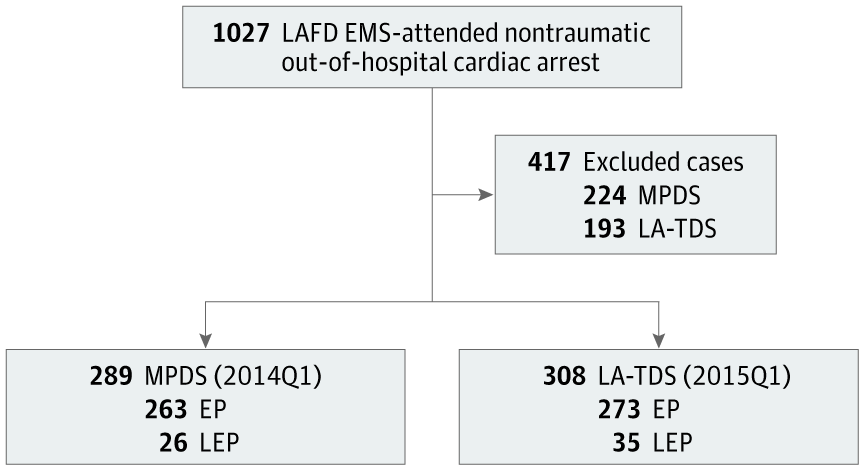Read Full Article | View Source

Key PointsQuestion
Did the implementation of a new dispatch system change telecommunicator-assisted cardiopulmonary resuscitation (T-CPR) for patients in cardiac arrest involving 9-1-1 callers with limited English proficiency?
Findings
In this cohort study of 597 emergency calls for cardiac arrest, compared with the Medical Priority Dispatch System that was used for 25 years in the City of Los Angeles, the new Los Angeles Tiered Dispatch System was associated with an immediate increase in the prevalence of T-CPR and decreased times to cardiac arrest recognition and first chest compression when callers had limited English proficiency.
Meaning
This study found an association between the Los Angeles Tiered Dispatch System and improved emergency care in cardiac arrest cases involving 9-1-1 callers with limited English proficiency; further studies are needed in this group to increase activation of the chain of survival and improve health outcomes in cardiac arrest.
Importance
Increasing bystander cardiopulmonary resuscitation (CPR) among racial/ethnic minority groups and culturally underserved populations is a key strategy in improving health care disparities in out-of-hospital cardiac arrest.


